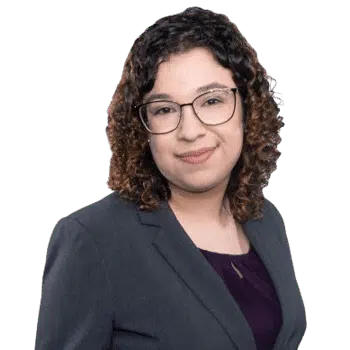Trauma is common among veterans, but CBT can benefit those struggling with emotional health challenges and PTSD.
Veterans are often exposed to traumatic images and experiences that linger long after the event. Trauma is common among veterans and can result in long-term physical and emotional health challenges. The U.S. Department of Veterans Affairs (VA) reports that approximately 7% of adult veterans experience post-traumatic stress disorder (PTSD) compared to 6% of the general adult population. The VA reports that 13% of female veterans experience PTSD, and 6% of male veterans experience PTSD.
What Is CBT?
Cognitive-behavioral therapy (CBT) is a treatment that helps people recover from a range of emotional health challenges. CBT helps veterans learn to recognize their emotional triggers and understand the impact of their experiences on their thoughts, feelings and behaviors.
CBT first originated in the 1960s. Psychiatrist Aaron Beck developed this theory of how thoughts, feelings, behaviors and interpretations of these events combine to create the lived experience of humans. Since then, CBT has helped people manage and recover from a variety of mental health challenges, including:
This Season, Give Yourself the Gift of a Fresh Start.
Whether you are struggling with addiction, mental health or both, our expert team is here to guide you every step of the way. Don’t wait— reach out today to take the first step toward taking control of your life.
- PTSD
- Substance use disorders (addiction)
- Depression
- Anxiety
- Personality disorders
- Obsessive-compulsive disorder
- Bipolar disorders
- Eating disorders
- Psychotic disorders
- Insomnia
Types of CBT
Cognitive-behavioral therapy is a flexible therapy that meshes well with different treatments. Mental health professionals use seven common types of CBT, and each can benefit different patient needs.
Cognitive Therapy
The idea behind cognitive therapy is that our thoughts influence our moods and behaviors. Cognitive therapy helps people correct faulty beliefs to impact mood and behaviors for a better quality of life.
Dialectical Behavioral Therapy (DBT)
Marsha Linehan developed DBT in the 1960s to help people who struggled with emotion regulation, self-acceptance and suicidal ideation. DBT is a treatment in which participants learn and practice skills to reduce the impact of emotional health challenges.
Acceptance and Commitment Therapy (ACT)
ACT helps people identify and accept their thoughts and feelings while working toward behavioral changes that will help reduce emotional symptoms. A core theme of ACT is cognitive flexibility, which allows people to accept their challenges and see the parts of them that they can change.
Mindfulness-based Cognitive Behavioral Therapy (MBCBT)
Mindfulness-based CBT helps manage the physiological aspects of PTSD. Mindfulness skills can ease some of the most problematic PTSD symptoms.
Rational Emotive Behavioral Therapy (REBT)
REBT is a type of CBT treatment based on philosophy. It considers the different influential factors (like thoughts, feelings, experiences and outlooks on life) that shape how a person chooses to live.
Multimodal Therapy
Multimodal therapy combines several evidence-based treatments for the best results. Depending on the individual’s treatment needs, multimodal therapy may include medication, case management and talk therapy.
CBT for PTSD
When veterans are traumatized due to their work, it can have devastating long-term emotional and physical health outcomes. Cognitive-behavioral therapy can help reduce and manage symptoms of PTSD that can be disruptive to daily life. Practicing CBT with a trained professional can help veterans:
- Identify symptoms of trauma exposure
- Recognize early signs and triggers
- Manage intrusive thoughts and distressing emotions to improve quality of life
- Use mindfulness skills to get relief from trauma symptoms
CBT for Co-Occurring PTSD and Addiction
Alcohol and drug addiction can devastate veterans and their loved ones. However, when trauma negatively impacts one’s life, substance use can feel like an escape. CBT can help people struggling with addiction find new coping strategies.
Veterans can learn to identify automatic thoughts, replace them with more helpful ones and understand how their thoughts and feelings impact their choices. Recognizing how their inner experiences shape substance use can help shift perceptions and develop new patterns.
CBT Treatment for Veterans
The FORTITUDE program at The Recovery Village Columbus was developed specifically for veterans as an evidence-based treatment for substance use disorders and co-occurring mental health conditions like PTSD. Clinicians and therapists in FORTITUDE provide trauma-informed care with years of experience in understanding how veterans think, feel and work.
CBT is an important part of this specialty track: it helps veterans learn new ways of managing difficult emotions and traumatic memories. Patients may undergo CBT in individual therapy sessions and group sessions with other veterans.
If you or a loved one is a veteran who has experienced trauma and substance use challenges, reach out to the FORTITUDE program for support and healing.









